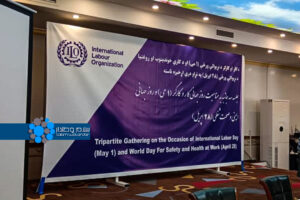MONITORING (SW) – The US Special Inspector General for Afghanistan Reconstruction, SIGAR, has painted a grim picture of women rights in Afghanistan following the rise to power of the Islamic Emirate.
It said in a latest report that as of October 6, 2021, conflicts had induced 665,200 Afghans to flee their homes in 2021, according to the UN Office for the Coordination Humanitarian Affairs.
It said that as of August 15, USAID had only one remaining Promote program, which aimed to strengthen women’s participation in civil society. Like other USAID activities, this program has been suspended. Promote’s Musharikat (Women’s Rights Groups and Coalitions) program was focused on advancing women’s participation in the peace process, political participation, and addressing gender-based violence (GBV).
It said that future of women remained uncertain. According to the UN, there are increasing reports that the Taliban have prohibited women from appearing in public places without male chaperones.
SIGAR issued an updated assessment of the Afghan government’s implementation, resourcing, and administration of the Afghanistan National Strategy for Combating Corruption. SIGAR found that corruption remained a serious problem and more tangible government action was required to root it out.
It noted that specifically, the Afghan government should have: (1) created and implemented benchmarks that were specific, verifiable, time bound, and achieved the desired outcome; (2) amended Article 102 of its Constitution or developed and enforced procedures for the arrest and prosecution of members of Parliament; (3) created and maintained a single, comprehensive list of warrants for individuals accused of corruption crimes; (4) provided additional resources to support the declaration and verification of assets by public officials; (5) increased formal and informal cooperation.
Meanwhile, Bilal Karimi, one of the deputy spokesman of the Islamic Emirate, rejected the reports about restriction on women such as curbs on their access to health centers, calling such reports as irrational. He said that so far no case of women being prevented from going to health centers by the officials of the Islamic Emirate has been registered.
Still, restrictions on women’s access to healthcare have also provoked reactions from women rights activists.
“If women have a patient and they do not go to a health center, the patient dies,” said Ogg Emil, a women’s rights activist who is concerned about how restrictions are placed on women. “Such restrictions are unbearable.”
ENDS






